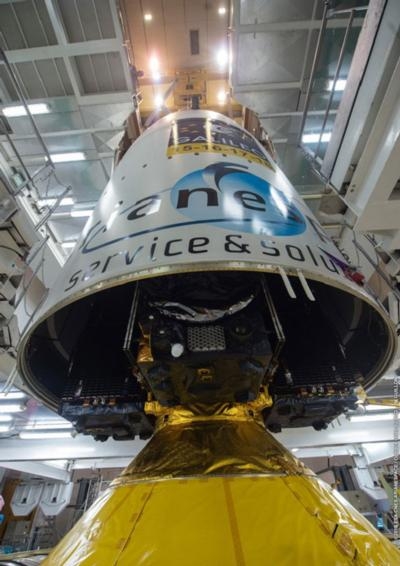Wed, Nov 16, 2016
Advertisement
More News
 Aero-News: Quote of the Day (05.28.24)
Aero-News: Quote of the Day (05.28.24)
"Clearing this certification hurdle is a major step forward in providing European CJ customers with a solution that not only enhances their aircraft operations but can also extend >[...]
 ANN's Daily Aero-Term (05.28.24): Permanent Echo
ANN's Daily Aero-Term (05.28.24): Permanent Echo
Permanent Echo Radar signals reflected from fixed objects on the earth's surface; e.g., buildings, towers, terrain. Permanent echoes are distinguished from “ground clutter&rd>[...]
 ANN's Daily Aero-Linx (05.28.24)
ANN's Daily Aero-Linx (05.28.24)
Aero Linx: Vintage Sailplane Association The purpose of the Vintage Sailplane Association (VSA) is to promote the acquisition, restoration and flying of vintage sailplanes by its m>[...]
 Airborne-NextGen 05.21.24: Liberty Lifter, Cavorite Flies!, Eurodrone
Airborne-NextGen 05.21.24: Liberty Lifter, Cavorite Flies!, Eurodrone
Also: AMA National Fun Fly, Skyfire SF2, Echodyne Gets BVLOS, Av Meteorology Reference General Atomics' run at developing the Liberty Lifter ground effect aircraft has been put to >[...]
 Airborne 05.24.24: NPS Kills Rushmore Flyover, VAI v NYC, New Reno Home-Roswell!
Airborne 05.24.24: NPS Kills Rushmore Flyover, VAI v NYC, New Reno Home-Roswell!
Also: Samson Sky, CAF Great Plains Wing, New Cert Standards, Flying Start Day There are, occasionally, blisteringly dunderheaded bits of governmental incompetence to be found with >[...]
blog comments powered by Disqus




